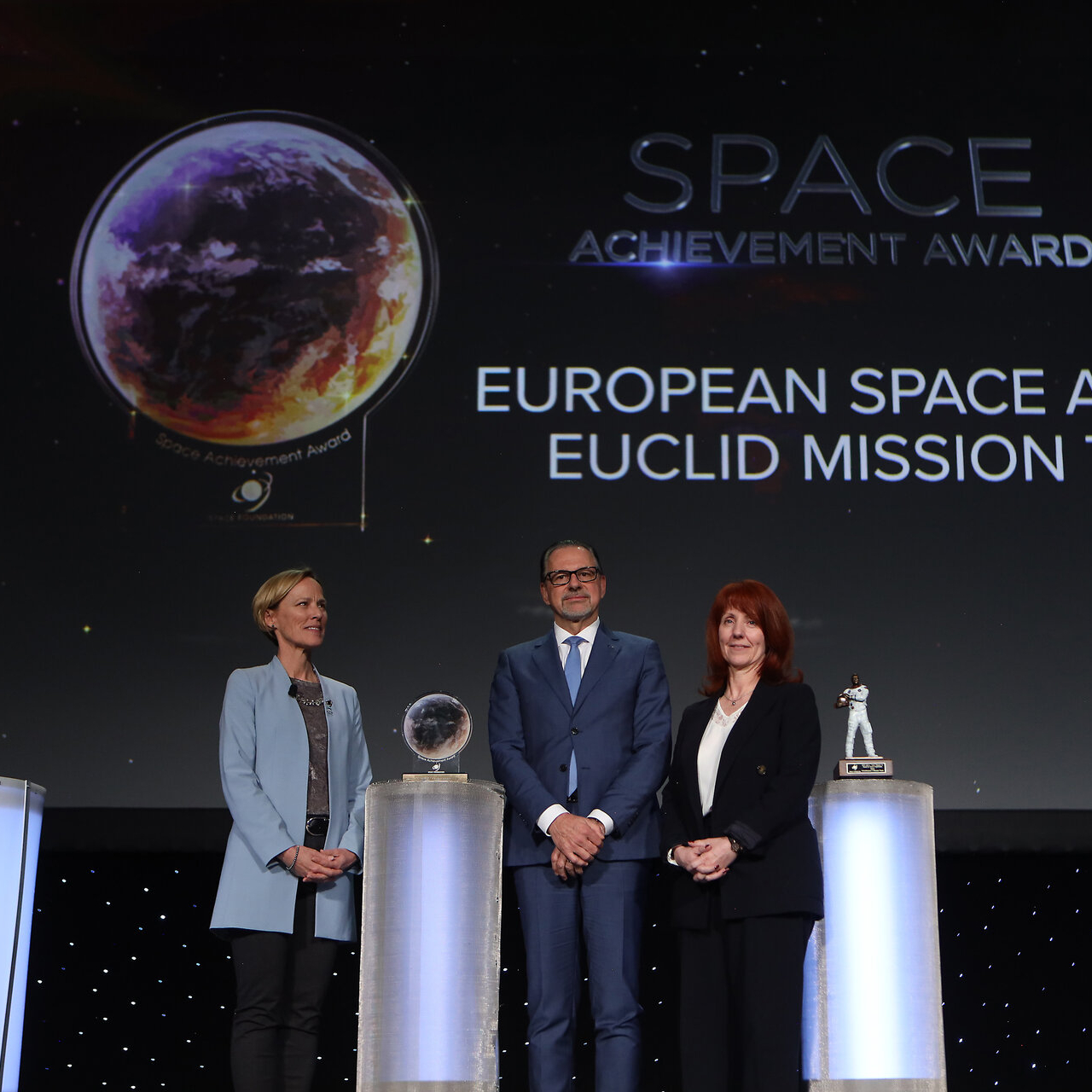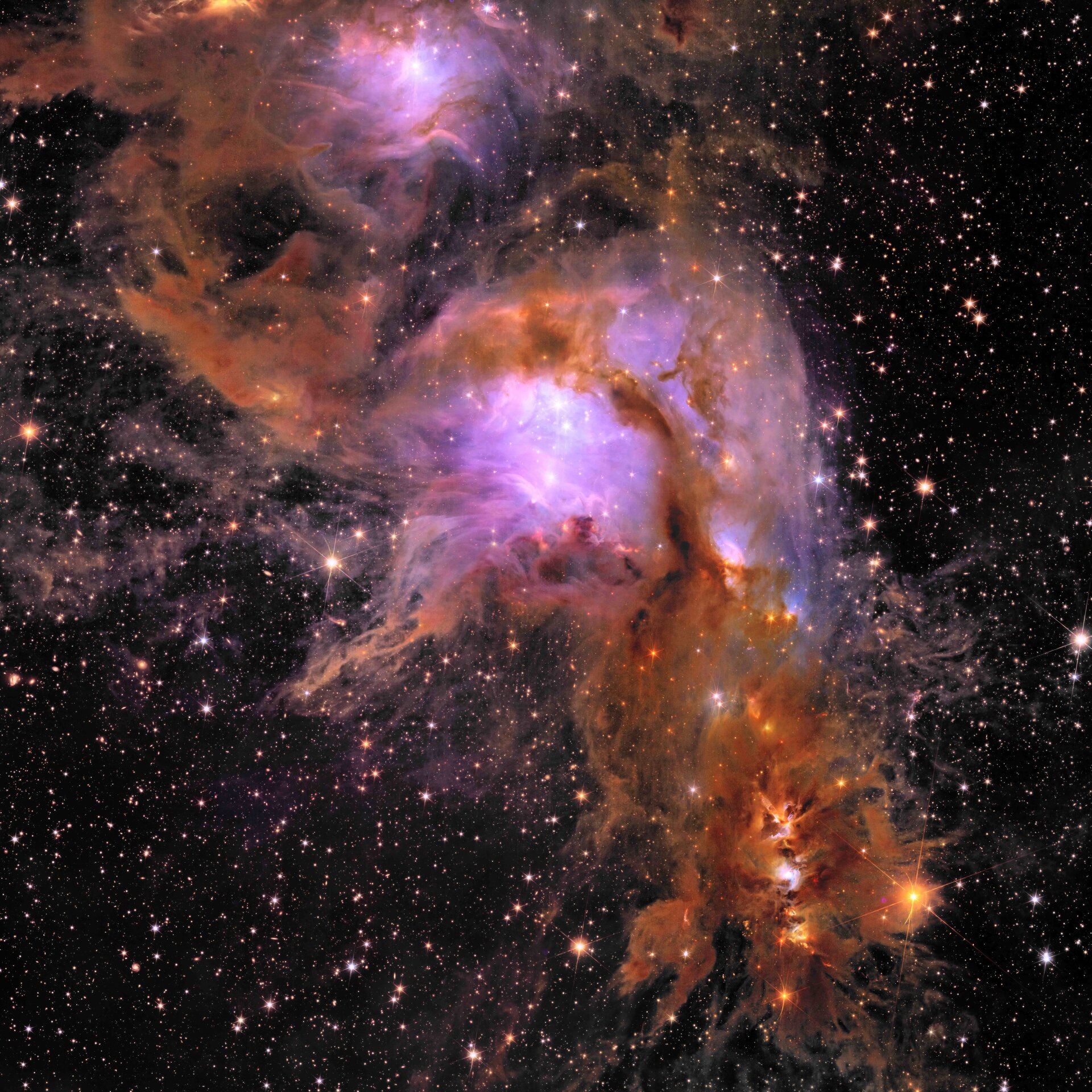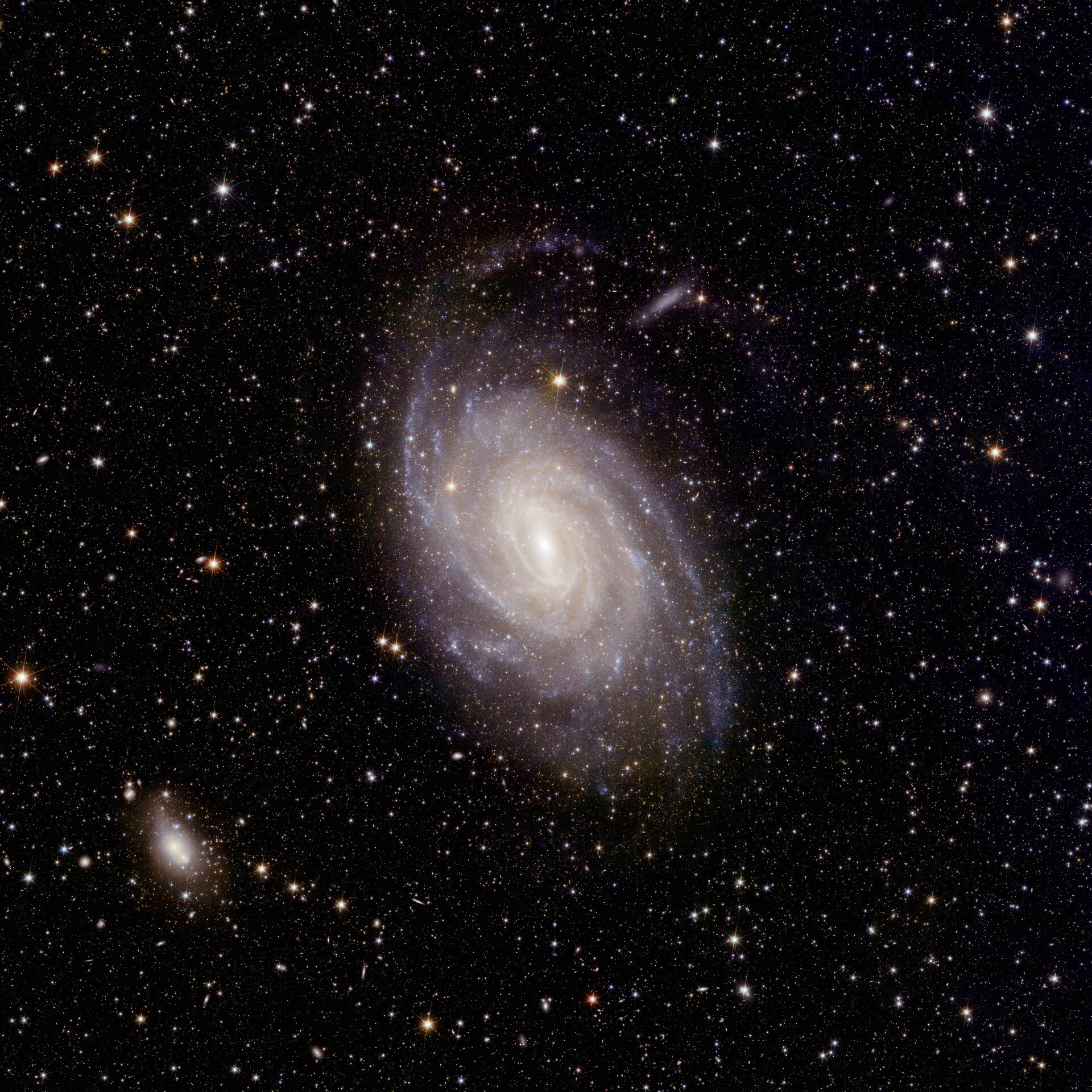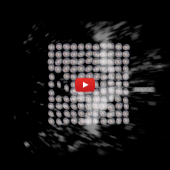Home - Euclid
Euclid: Exploring the dark universe
Euclid is a space survey mission dedicated to investigate the origin of the accelerating expansion of the Universe and the nature of dark energy, dark matter and gravity. Euclid will map the geometry of the Universe, and reconstruct the evolution of large scale sctructures over the last 10 billion years. Euclid was approved in 2012 as the second Medium Class mission (M2) in the ESA Cosmic Vision Programme. Euclid was launched on 1 July 2023 with a SpaceX Falcon 9 from Cape Canaveral.
The mission is optimised to measure shapes of galaxies, which are distorted by gravitational deflection of light due to dark matter concentrations, and to measure galaxy clustering, that is the non-random distribution of galaxies in the Universe resulting from the action of gravity. Euclid demands very high precision measurements and the ability to survey the sky at visible and near-infrared (NIR) wavelengths. Such requirements cannot be met from the ground, and calls for a wide-field Visible/NIR space mission. For more information see our SciTech site, and the "red book".
Latest News
 15-Oct-2024
15-Oct-2024Zoom into the first page of ESA Euclid’s great cosmic atlas
On 15 October 2024, ESA's Euclid space mission reveals the first piece of its great map of the Universe, showing millions of stars and galaxies.
This first chunk of the map, which is a huge mosaic of 208 gigapixels, contains 260 observations made between 25 March and 8 April 2024. In just two weeks, Euclid covered 132 square degrees of the Southern Sky in pristine detail, more than 500 times the area of the full Moon.
Further details on ESA's Science & Exploration portal.
Access the video
 09-Apr-2024:
09-Apr-2024:Euclid mission team honoured with Space Foundation Award
The Euclid mission team was awarded this year's Space Achievement Award by the Space Foundation, a non-profit organisation founded in 1983 to foster collaboration across the global space community. ESA Director General, Josef Aschbacher (centre), and ESA Director of Science, Carole Mundell (right), collected the prize at the Space Symposium in Colorado Springs, USA
Further details on ESA's Space Science portal.
An image gallery of the event can be accessed here (source: Space Foundation)









 11-Sep-2024
11-Sep-2024 01-Aug-2024
01-Aug-2024 30-May-2024
30-May-2024 23-May-2024
23-May-2024